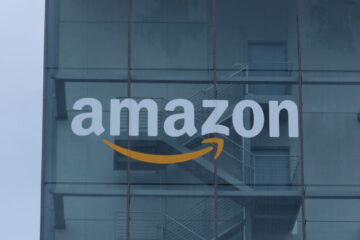Disney has sent mixed signals about its theme park attendance while Universal has made a move that suggests it wants more people to visit its park for longer.
Call the omicron variant the villain in the story of why Florida’s Walt Disney World and Universal Studios appear to have at least a short-term attendance problem. In many ways, the latest variation of the pandemic may turn out to be a villain more like Gru from the “Despicable Me,” franchise or the cantankerous grandfather in Pixar’s “Up.”
In both of those cases, the villainy turned out to either be misconstrued or short-lived. Now, of course, omicron won’t be turning into a beloved character, but its impact could quickly fade and both Walt Disneys (DIS) – Get Walt Disney Company Report and Comcast’s (CMCSA) – Get Comcast Corporation Class A Report theme parks could see the impact on their attendance be short-lived.
In the meantime, both Disney and Universal Studios have made some short-term moves to entice people to spend more time at their Florida theme parks.
Image Source: Universal Studios.
What Are Disney World and Universal Doing to Increase Attendance?
Disney paused sales of annual passes in Florida for much of the pandemic before changing the program and reopening sales. The company then paused its annual pass program in November, only keeping its lowest level Florida-resident-only Disney Pixie Dust Pass ($399 a year) on sale.
That pass has significant blackout dates which vary for each of the company’s four theme parks and you have to prove Florida residency to buy one. By selling those passes — and only those passes — Disney clearly wants to boost its weekday, non-holiday attendance.
That makes sense because holidays, school vacations, and weekends, tend to draw larger out-of-town crowds while locals know to avoid the parks (even if they hold a higher-level pass that grants them access.
Disney has also been advertising a Florida-only deal designed to boost short-term attendance. Under this promotion, residents of the Sunshine State can buy two days of weekday access to the company’s parks for $149. “Disney Weekday Magic Tickets are valid Monday to Friday only, from January 11 through April 7, 2022 — subject to blackout dates from March 14 through March 18, 2022,” according to the company.
A single-day ticket to one of Disney’s Florida theme parks costs between $109 and $159 depending upon the demand/time of year.
Universal Studios, in turn, is taking a different approach and hoping to boost attendance with lower prices for everyone. The theme park brought back its two-days-free deal and is giving those who book before March 31 a total of five days at parks like Islands of Adventure, Universal Studios Florida and the Volcano Bay water park for a starting price of $176.99. (A single-day ticket starts at $109.).
“With this deal, you can get into the parks for as little as $49 per day. You must purchase your tickets by May 5, but they will be valid until December 15 this year, so you can lock in a low price now. All five days on the ticket must be used within seven days of its first use, however,” wrote Robert Niles of Theme Park Insider.
In addition, Universal Studios has a buy two-days, get two-days ticket deal for Florida residents. Much like the Disney deal,
Universal is also hoping to get a leg up on its competitors with the promise of no blackout dates. All but the most expensive Disney annual pass, which isn’t currently on sale, prevents holders from attending during a few peak periods.
Disney and Universal Expect a Theme Park Comeback
Between lockdowns and fear of catching COVID-19, the early days of the pandemic have certainly been disastrous for the theme park industry — attendance at the 25 biggest parks in the country (Disneyland, Disney World, and Universal Studios are all on this list) fell by 67% between 2019 and 2020, according to a report by the Themed Entertainment Association and AECOM.
But by 2021, visitors were clearly turning to theme parks for a pick-me-up during a drawn-out pandemic — along with rising attendance, average spending at all the Disney parks also increased by 30% compared to 2019. Attendance is certainly boosted by the fact Florida’s Governor Ron DeSantis taking a very conservative approach to the pandemic and prioritizing business over any restrictions.
Even so, theme park attendance continues to be on shaky ground in the wake of new variants and rising case counts that cause the more cautious among us to postpone even domestic travel. In that sense, Disney’s focus on luring in Florida locals with various deals may be a safer bet than across-the-board discounts to all visitors.
“While re-opened theme parks were a positive driver for the broader business this past quarter, that was accomplished largely with just domestic crowds in attendance,” Stephen Guilfoyle wrote for TheStreet’s RealMoney.
That said, both the parks themselves and analysts like Guilfoyle are betting on an attendance comeback that continues beyond 2022 as the company navigates increased travel alongside efforts to boost its streaming content. In a memo sent to Disney employees after the last earnings call, CEO Bob Chapek wrote that the consumer was the company’s “North Star” in all decision-making.
“Given a little luck, and the grace of a hopefully abating pandemic, bring on foreign tourism,” Guilfoyle wrote.


